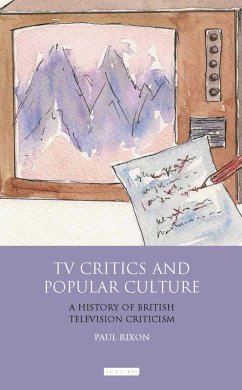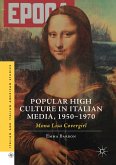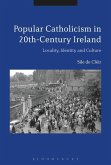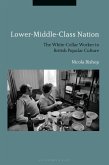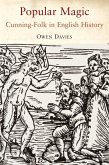Ever since the first scheduled television broadcasts began in the 1930s, newspapers and magazines took quickly to reviewing this revolutionary new medium. The task of television criticism in the public doman intially fell to radio critics and journalists, but the 1950s saw the rise of the dedicated TV critic. These critics, including Peter Black, Philip Pursor and Clive James, played an important part in shaping the public discourse about television. This new book explores the evolution of television criticism in Britain, exploring different types of TV critics and reviewers, the form of their work, and evaluates their importance in our understanding of the way television has become such an integral part of modern culture. It also asks whether, with the birth of new technologies, is the TV critic a dying breed? This is an important contribution to the fields of Journalism and Television Studies, Cultural Studies, and contemporary History.
Bitte wählen Sie Ihr Anliegen aus.
Rechnungen
Retourenschein anfordern
Bestellstatus
Storno

